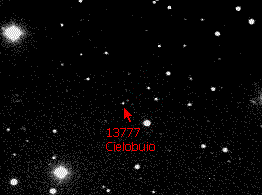Nature, la prestigiosa rivista scientifica inglese, pubblica nella rubrica “Opinions” del numero di ferragosto (Vol. 418, No. 6899, pag. 709, 15.8.02) un appello alla salvaguardia del cielo stellato.
Vengono citate la minaccia di utilizzo di lampade al mercurio per Venezia, la posizione dell’IDA, le leggi anti-IL europee, ed in particolare la legge lombarda, la possibilità che l’UNESCO dichiari il cielo stellato “patrimonio dell’umanità”.
In inglese, ma si legge agevolmente.
SAVE STARRY NIGHTS
Cities should stop lighting up the heavens.
From the Ponte di Rialto in Venice on a clear night you can see every star in the constellation Ursa Minor. In nearly all of the world’s other cities, from New York to Sidney, you can’t. Venice has mantained the privilege of a starry sky because it has no traffic, and because public lighting has, until now, always been subdued, in keeping with the city’s romantic architecture. But even Venice’s night sky is now threatened by a new mayor who supports the introduction of mercury street lighting.
Fortunately, hopes that ligh pollution will not worsen are not completely forlorn. Over the past decade, the small but passionate lobby for legal standards in outdoor lighting, spearheaded by the International Dark Sky Association in Tucson, Arizona, has witnessed the passing of lighting laws and ordinances in several US States, counties and cities, and more recently in Europe, notably in Lombardy and other Italian regions. The Czech government passed a lighting control law in February this year; it is the only national law in existence.
The stars are our rightful heritage. Moreover, light pollution interferes with ground-based astronomy, disturbs human sleep and upsets nocturnal wildlife. None of that moves the hearts of legislators, however: they tend rather to be swayed by the economic argument that light thrown sideways and upwards is wasteful of energy.
Most of the laws relate only to state-funded lighting, and set a limit on light pollution, rather than banning it completely, even though there is now no shortage of companies that can provide pollution-proof fittings. More and tougher laws are required to meet even the modest goal of not worsening light pollution levels, and this requires a lobby that will be taken seriously. The International Dark Sky Association has turned to UNESCO (the United Nations Educational, Scientific and Cultural Organization) for support. UNESCO has given its powerful “world heritage” status to 730 cultural and natural sites worldwide – Venice among them – and initially wanted to get the night sky on the list. But its own rules require that the heritage to be protected belong to a particular government.
UNESCO is apperntly considering a proposal to create a list of heritage sites that nobody owns, such as the oceans and sky. Human health might not be damaged by a lack of starlight, but the quality of urban citizens’ lives will be significantly diminished if the night sky is available to them only in planetariums.





